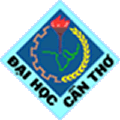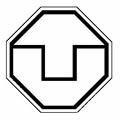RENEW
Development of practice oriented guidelines for the preparation of feasibility studies on the production of RENewable Energy from organic Waste and biomass by biogas plants and biomass combustion plants, with an applied example for Phú Quôc/S.R. Vietnam
Project duration: February 2005 – January 2006
Background
Today the overall application of renewable energy from biomass is still limited in Vietnam. Although there are thousands of small biogas plants, which generate gas for direct use (e.g. cooking), larger plants for electricity generation rarely exist. Biomass combustion plants have been installed in Vietnam, but need to be improved towards best practices.
The typical constraints to optimal use of renewable energy in Vietnam as well as other ASEAN countries are legal and institutional barriers as well as lack of information and technology transfer. Systematic data are still inadequate for biomass planning and for developing energy policies on supply and demand. Thus there is a demand for demonstration plants for renewable energy generation which will show technical and economic feasibility as well as resulting benefits.
The facilities for energy production on Phú Quôc are old and need replacement. They also do not meet the growing energy demand. Therefore the regional authority is currently in the process to tackle the energy supply problem. They will need to decide upon a solution and consider a grid-connection to the mainland, on the one hand, or decentralised applications on the other hand. Due to the prevailing framework conditions on the island of Phú Quôc, renewable energy production from organic waste and biomass can be regarded as a very promising option for a future sustainable development of the island.

RENEW is an EU-supported project in the framework of the EC-ASEAN Energy Facility Programme (Contract 129-2004). The specific objective of this project is to develop practice oriented guidelines for the preparation of integrated feasibility studies on the generation of renewable energy in ASEAN countries. Technical, economical, environmental, social and legislative aspects will be considered. The development of the guidelines will be supported by the exemplary development of a feasibility study for the island of Phú Quôc.
Objectives
to support the export of European products and services of the renewable energy sector into the ASEAN market, by providing know-how, methodologies and tools in the form of guidelines,
- to promote the installation of a renewable energy facility on Phu Quoc which can serve as demonstration plantfor an appropriate solution for ASEAN countries and European know-how and technology,
- to contribute to the cooperation between countries of the European Union and ASEAN member countries by transfer and exchange of knowledge and know-how in the field of renewable energy and technical solutions for ASEAN countries,
- to support the current regional effort of the local decision-makers to improve the energy situation on Phu Quocby providing the results of a feasibility study, which represents the basis for further planning steps, investment decisions and acquiring financing,
- to promote the ASEAN Plan of Action for Energy cooperation 1999-2004 by supporting the implementation of renewable energy projects in Vietnam,
- to promote environmental protection at global level by supporting the implementation of renewable energy solutions (by guidelines and feasibility study Phu Quoc) which save fossil resources and reduce greenhouse gas emissions,
- to promote the reduction of pollution at local level by supporting the implementation of renewable energy solutions, which means reduced air or noise pollution (compared to electricity generation by diesel generators), reduced uncontrolled waste disposal and resulting water pollution, soil pollution and smell,
- to support the political aim of sustainable development of Phu Quoc by promoting the implementation of renewable energy solutions which are cost-efficient, safe, reliable and socially and environmentally sound.
Project partners

Institut für Energie und Kreislaufwirtschaft an der Hochschule Bremen GmbH, Germany – project co-ordinator
Dr. rer.nat. Martin Wittmaier
Institut für Energie und Kreislaufwirtschaft an der Hochschule Bremen GmbH
Tel.: +49 (0) 421 5905-2311
Fax: +49 (0) 421 5905-2380
E-mail: wittmaier@hs-bremen.de

Can Tho University, Vietnam
Dr. Do Ngoc Quynh
Tel.: +84 (0) 71 834539
Fax: +84 (0) 71 831115
E-mail: dnquynh@hcm.vnn.vn

Aristotle University of Thessaloniki, Greece
Prof. Avraam Karagiannidis
Laboratory of Heat Transfer and Environmental Engineering
Tel.: +30 (0) 2310 994 165
Fax: +30 (0) 2310 996 012
E-mail: makis@aix.meng.auth.gr

Institute of Energy, Vietnam
Dr. Pham Khan Toan
Tel.: +84 (0) 4 852 2453
Fax: +84 (0) 4 852 3311
E-mail: toanpk@fpt.vn

Technical University Dresden, Germany
Prof. Dr.-Ing. habil. B. Bilitewski
Institute for Waste Management and Contaminated site treatment
Tel.: +49 (0) 3501- 530030
Fax: +49 (0) 3501- 350022
E-mail: abfall@rcs.urz.tu-dresden.de
Prof. Dr. rer.nat. Peter Werner
Institute for Waste Management and Contaminated site treatment
Tel.: +49 (0) 3501-530020
Fax: +49 (0) 3501 -530022
E-mail: pwerner@rcs.urz.tu-dresden.de
Prof. Dr. rer.pol. habil Hans Wiesmeth
Department of Economy Science, Professor for economics
Tel.: +49 (0) 3501-436 34999
Fax: +49 (0) 3501 -463 37267
E-mail: Wiesmeth@rcs.urz.tu-dresden.de
Target groups & events
- European companies in the energy/renewable energy sector
- Vietnamese/ASEAN companies in the energy/renewable energy sector
- Local and regional decision makers, representatives of administration and stakeholders involved in energy supply
and sustainable development of Phú Quôc, Vietnam - Other decision-makers, representatives of administration, stakeholders involved in energy supply and sustainable development in The ASEAN region
- Investors
- Inhabitants and tourists of Phú Quôc, Vietnam
- Population of ASEAN countries
Events:
- Workshop on 5th December 2005 on Phú Quôc island, S.R. Vietnam
Results & Downloads
Guidelines for the preparation of feasibility studies
- English version – pdf
Feasibility study for the generation of renewable energy from organic waste and biomass
- Project concept Phu Quoc EN – pdf
- Feasibility study EN – pdf
Activities
- Data collection in Vietnam EN – pdf
- Workshop EN – pdf
Publications & Literature
Funding
The Project was co-funded by the European Commission under the EAEF Programme.
The EC-ASEAN Energy Facility (EAEF) Programme which became operational 1 March 2002 is an initiative to further strengthen the energy co-operation between the EC and ASEAN. The overall objectives of the Programme are:
– Increasing the security of energy supply of ASEAN countries and indirectly of Europe,
– Increasing the economic exchanges between European Union and ASEAN countries,
– Improving the environment at local and global level,
– Facilitating the implementation of the ASEAN Plan of Action for Energy Co-operation 2004-2009.
The ASEAN Centre for Energy (ACE) is the contracting authority of the Programme.



Institut für Energie und Kreislaufwirtschaft an der Hochschule Bremen GmbH
Institute for Energy, Recycling and Environmental Protection at Bremen University of Applied Sciences
-
Neustadtswall 30
28199 Bremen
Germany - +49 421 5905-2326
- office-iekrw@hs-bremen.de






